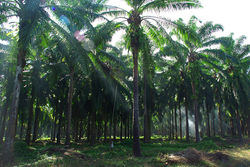

 |  |  |
|---|
Reducing the need for conventional waste disposal
Reduce landfill requirements
Reduce greenhouse gasses
Community involvement
Waste-to-Energy
Energy-from Waste
Waste-to-energy or energy-from-waste is the process of generating energy in the form of heat and/or electricity from the primary treatment of waste.
Most Waste-to-Energy processes produce heat and/or electricity directly through combustion, or produce a combustible fuel commodity, such as methane, methanol, ethanol or synthetic fuels.
Reducing landfill requirements
Waste-to-energy uses residual trash as a fuel for generating power, just as other power plants use coal, oil, or natural gas.
The burning fuel can heat water into steam that drives a turbine to create electricity.
The process can reduce a community’s landfill volume by up to 90 percent, and prevent one ton of carbon dioxide release for every ton of waste burned.
Waste characterisation and feasibility analysis is the first step in deciding which waste-to-energy technology would be socially, environmentally and financially appropriate.
To discuss options and arrange an assessment please contact us.
A way to recover valuable resources
Waste-to-energy isn’t just a trash disposal method. It’s a way to recover valuable resources.
Waste-to-energy is a vital part of a sustainable waste management chain and is fully complementary to recycling.
Today, there are many established waste-to-energy technologies where residual waste is further beneficiated.